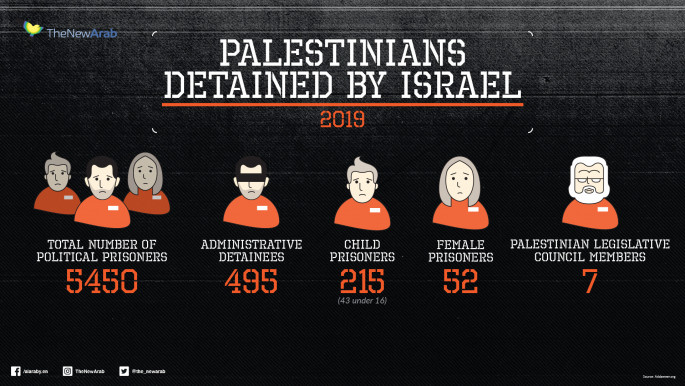Hunger-striking Palestinian slapped with six-month administrative detention without charge or trial
An Israeli military court slapped a six-month administrative detention order on hunger-striking Palestinian detainee Musab al-Hindi, the Detainees and Ex-Detainees Commission said on Thursday.
Al-Hindi, 29, from Nablus in the occupied West Bank, was detained by occupying Israeli forces on 4 September and was soon after placed under administrative detention without charge or trial.
For the past 25 days, he has been on hunger strike to protest his detention and solitary confinement.
Al-Hindi, who has at various times in his life been detained by Israel, is being held at at Ohlikdar Israeli Prison after being relocated several times by the Israeli prison service from one prison to pressure him to break his strike.
Read also: Palestinian Prisoners Day: Detainees launch hunger strikes as supporters march in solidarity
Al-Hindi is a former prisoner who was numerously detained by Israeli forces. He spent more than a third of his life in prison, previously spending 11 years in occupation jails.
This is the second time al-Hindi goes on a hunger strike to protest his detention without charge or trial.
Read more: Palestinian hunger strikers: The frontline of an imprisoned nation
Last year he embarked on a 35-day hunger strike which he ended after Israeli authorities agreed to release him.
In Israel, administrative detention orders often are placed between a two to a six month period and are indefinitely renewable, meaning Palestinians can potentially be jailed for life without charge and with no right to trial.
Israel says administrative detention is intended to allow authorities to hold suspects while continuing to gather evidence, with the aim of preventing attacks in the meantime.
The policy has been criticised by Palestinians, human rights groups, and members of the international community who say Israel abuses the measure, in which even children are subjected to administrative detention.



